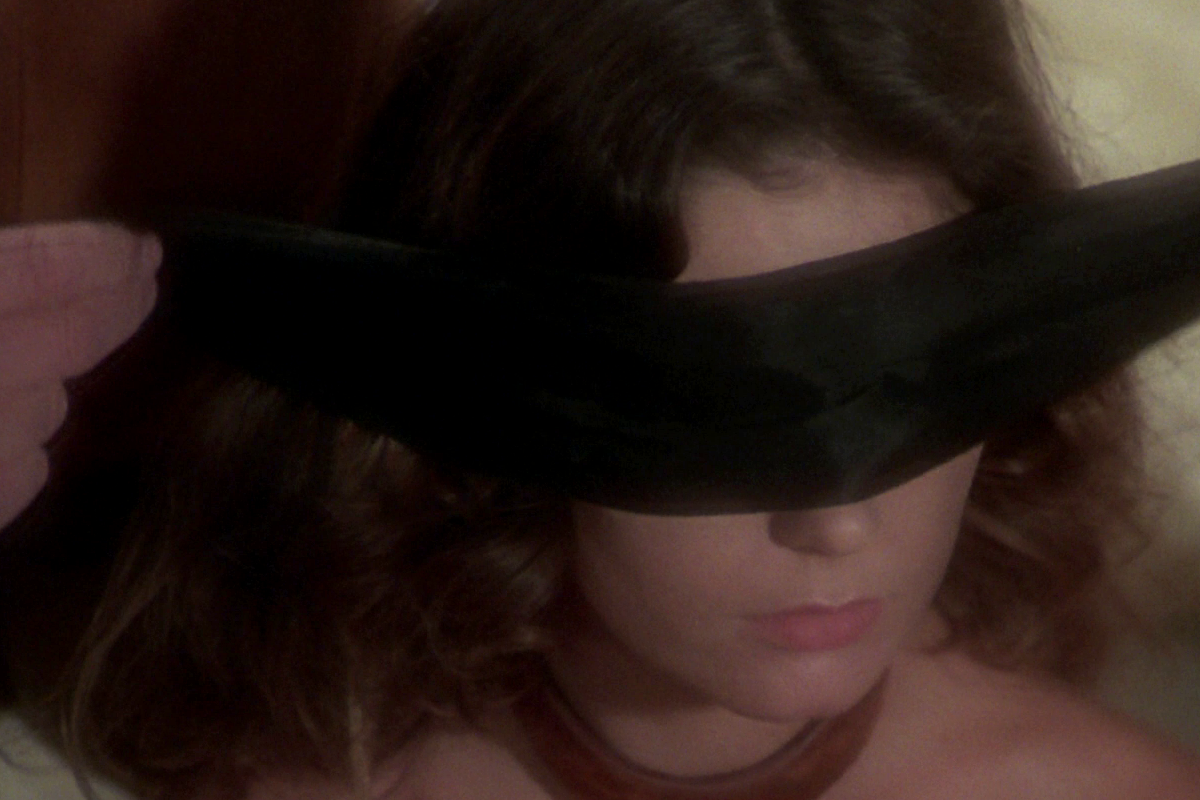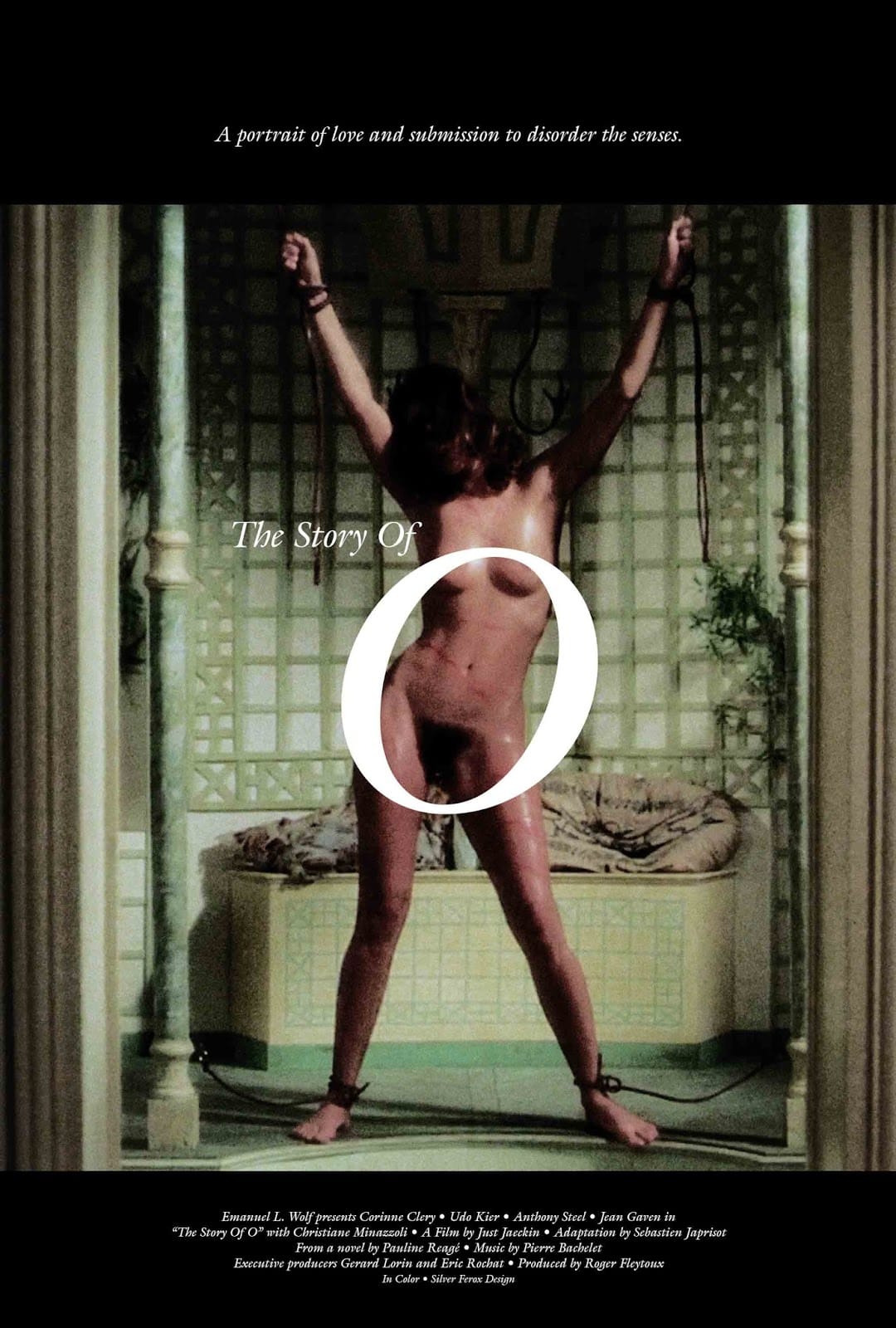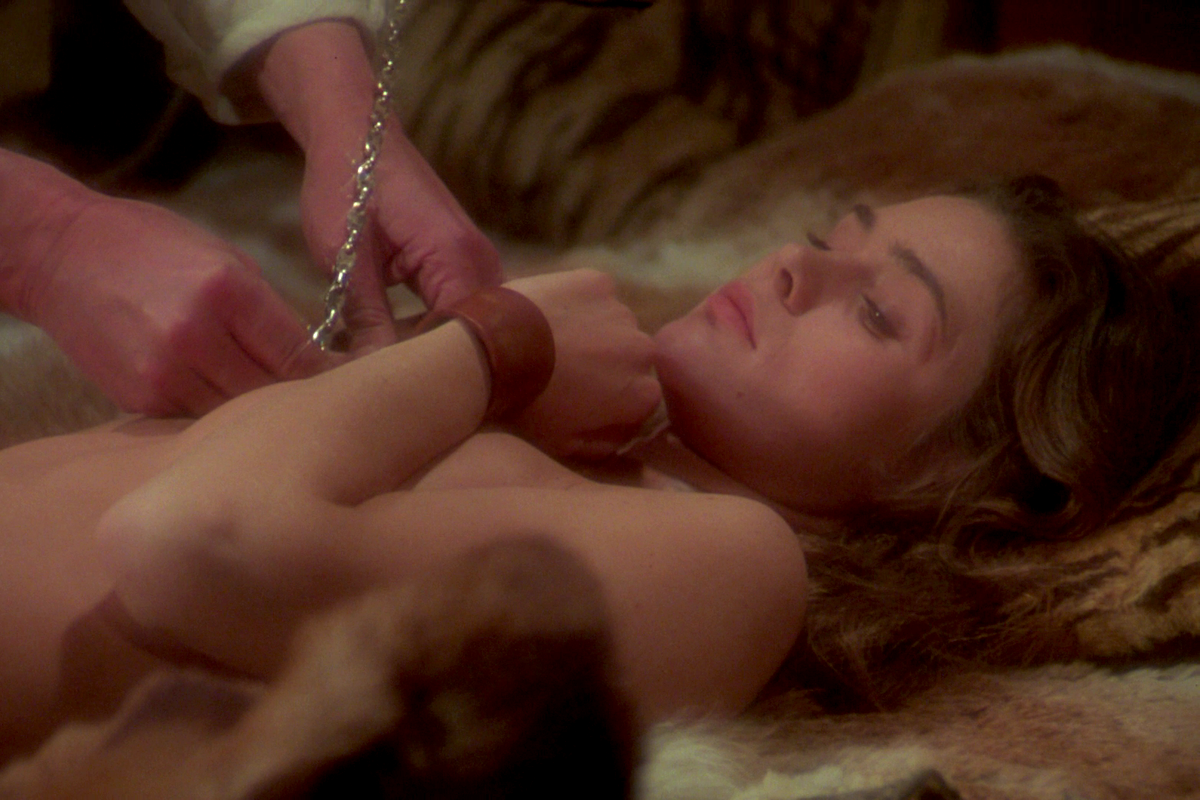Books
My Own Private Château—Pauline Réage’s ‘Story of O’ Revisited
Our culture makes a well intentioned but dangerous error in taking every thought experiment, every utterance, every representation, every fantasy of sexual expression seriously.

I’m sitting on a plane and I’m feeling increasingly excited. I’m flushed. My heart rate is up, and I can’t seem to find a comfortable way to sit. My agitation isn’t caused by any nervousness about flying, nor by any fears of contracting COVID-19 during the flight. My disquiet has been triggered by the book I’m reading. The sensations it arouses almost overwhelm me. I find I have to pause every few paragraphs, close the slim volume, and rest it on my lap in order to regain some sense of personal composure. Fiction usually transports my imagination away from myself, but this book is accomplishing the opposite: I feel increasingly aware of my body as I read it, as though being immersed in fiction has drawn me into a moment of privacy with myself. It feels somehow unseemly for the public world of the airplane to intrude on my private sensations. I have to put the book down frequently in order to remind myself that it is no act of indecency for the happy family sitting down the aisle from me to be talking casually, but rather that it is my own sense of secrecy that must be reconciled to the ordinary world around me.
I am reading Story of O, a novel written in 1954 that recounts the titular character’s journey into sexual bondage, violent penetrations, beatings, whippings, burnings, chains, gags, and dungeons. Readers only familiar with the pedestrian 1975 adaption are advised not to be put off—director Just Jaeckin’s film benefits from the lovely Corinne Cléry’s beguiling performance in the title role, but his soft-focus softcore aesthetic (gauzy white linen dresses and a smooth classical guitar soundtrack) miss the tenderness, the elegance, and the literary grace of the source. Graham Greene described Story of O as a “rare thing, a pornographic book well written and without a trace of obscenity”; Brian Aldiss remarked that O makes “pornography (if that is what it is) an art”; even JK Rowling has offered praise for the book, observing that, “If you’ve read Story of O you’ve kind of read the ultimate.” But it is JG Ballard’s description of the novel as “a deeply moral homily… touched by the magic of love” that resonates most powerfully with me. O is a radical instruction in morals (the book has a clear sense of feminine virtue, for one thing), and yet this sexual morality is unlike any I can find in our contemporary expression of sexual ethics, where self-expression is valued more than self-giving.
O is the story of a woman objectified and humiliated, of a woman who submits to being violated by the countless tongues and phalluses and fingers which enter her. The novel is more sensual than suspenseful—although there is a clear narrative, it is not a story driven by plot, but rather by a series of erotic episodes (Geraldine Bedell writing for the Observer described them as written with “a hallucinatory, erotic intensity”). It is a psychologically as well as sexually penetrative story of surrender, of being mastered and of becoming enslaved, especially its first chapter which describes the elegant sexual tortures of the château at Roissy, a kind of playboy mansion with fewer grottos and more dungeons.
It is here that, at the request of her lover René, O acquiesces in her complete submission. The cast of characters is sparse: O and René; Jacqueline, a young model whom O seduces, and Jacqueline’s 16-year-old sister, Natalie, a virgin eager to be initiated into the sexual rites of Roissy; Anne-Marie, an older and more ruthless mistress than are the many men at the château; sundry blondes, brunettes, and redheads arranged alluringly throughout the text; and finally O’s ultimate lover, the sophisticated Sir Stephen, a kind of father-figure to René who ends up laying claim to O, flogging her, shackling her labia with an iron ring, and branding her with his initials as his slave, “a condition,” the narrator tells us, “of which O herself was proud.” As I read of the many exquisite ways O gives herself for men’s uses, I begin to wonder if the book was presenting me not with a picture of masculine sexual fantasies, but with a vision of my own.
The novel was written by the mysterious Pauline Réage, a pseudonym. In what is arguably one of the most successful literary secrets, Réage’s identity was kept hidden for decades. It wasn’t until 40 years after the novel’s publication that the then 86-year-old Dominique Aury, a respected editor and French intellectual, revealed that she was the author. It seems fitting that in a novel of sexual submission, Aury—Dominique, dominance, dominatrix—maintained such strict control over her own identity. Even Dominique Aury was not her “real” name: she was born Anne Desclos, but legally changed it in 1940. Aury’s nested names and identities are like a meta-fictitious exercise in un-making and making the self, for questions of self-identity and self-integrity lie at the heart of her novel.
It hardly needs to be said that contemporary sexual values are centred firmly around the idea of individuality. This is how gender has become synonymous with identity, and how identity politics have become the foundational dogma of progressive ethics. This is also how contemporary discussions about sexuality have become anything but sexy. When one’s self-understanding and moral code are at stake, typically there isn’t a lot of room for fun, for play, or for risk: there is simply too much to take seriously. As a result, what we are permitted to say regarding sexual values must be tightly controlled—even our thoughts must be collared and kept on a short leash.
Aury, like our progressive modern age, unites sex with identity, but instead of taking an austere journey through correctness to arrive at an understanding of the self, she takes us down a more ancient, a more dangerous, way of seeing one’s sexual identity. Her way is to show us that Nature herself has already determined much of our individuality for us in the very form our bodies take: a form that is meant for another. The radical kernel of O’s story is not to be found in her descriptions of sexual acts (which, debauched and delicious, left this reader somewhat breathless), but rather in the idea that self identity is forged not from an internally constructed ego sustained by mirror-gazing, but in relationships—through Eros, through self-giving and devotion to something external to the self. “Both this flogging and the chain,” O is instructed on her first night at the château, “are intended less to make you suffer, scream, or shed tears than to make you feel, through this suffering, that you are not free but fettered, and to teach you that you are totally dedicated to something outside yourself.” O’s story is about her emancipation from the bondage of self-possession.

O’s surrender to others, her generosity in allowing any man to make use of her as he pleases, is entirely at odds with our culture’s obsession with self-validation. (One has to wonder why we must so desperately seek external validation for whom we feel ourselves to be. When we seek such affirmation, are we perhaps on shakier ground as an individual than we would want to admit?) Aury suggests that, paradoxically, it is O’s selflessness that allows her to be most audaciously herself, free from the anxiety produced by the claustrophobic nature of modern individualism. Aury unites the carnal and the sublime. She uses sexuality to arrive at a picture of identity, yet it is not a “sexual identity” that the novel endorses. It is instead a self that is porous. O is constituted through her opening to others, and enlightened by the knowledge that she is not a unique individual, but rather one who participates in the material world as herself an object, and finds joy and dignity in doing so.
As a modern individual, I object to much of this. The idea of agency, in particular, is central to how I conceive of myself as a person. And yet so much of me—perhaps even most of me—has been materially predetermined without my input or consent: I am a body. I am shorter than I’d like to be. I hate my nose. I can’t run as fast as I’d like. I get cramps with my period. (Why do I even have to get a period?) I am short of patience when I’m tired, and I’m tired because I lie awake at night for hours in agony because the very thing I’d like to do—sleep—is the one thing my body won’t. How much agency do I really have?
Histoire d’O, as it was originally titled in French, causes me to feel many, often conflicting, things, and not, as with the rest of myself, always things I would choose to feel. I am subjected to the narrative as I am subjected to my (often uncooperative) physical body. It is, as its title suggests, the story of an O, an opening, a hole, something to be entered and penetrated within myself. Thus it is that I find myself divided and deepened even as I write about this text. When I revisit my experience of reading the novel, as I am now, what strikes me most is not the depravity of its sex scenes, but its tenderness, its kindness, even—it seems strange to say—its decency. It is not a story that could have been written by a man, but only by a woman who takes delight in knowing how best to please a man. The book itself is an offering. It is a submission, in the sense of presenting a proposal for consideration and judgement, a submission that has been crafted with and for love. Aury herself revealed as much; from a distance of many decades, she explained that she wrote it for her lover, both as a spirited and defiant response to his assertion that women were incapable of exquisite erotic fiction, and also as an attempt to keep him interested in and excited by her. Her lover was Jean Paulhan, a respected intellectual author in his own right and an ardent admirer of the works of the Marquis de Sade, a literary influence to whom Aury tips her hat throughout her novel. The entire enterprise, between the covers and outside the narrative, is a story of erotic devotion. It’s a hymn to Eros, the god of love. Yet Eros, like all gods, requires sacrifice. And the very thing O sacrifices is her individuality.

Any feminist—indeed, any well adjusted modern individual—would see O’s submission to her repeated violations as antithetical to the goal of self-actualization. An individual should have self-esteem, self-confidence, and self-worth, be self-directed, self-contained, self-possessed, and self-fulfilled. Self-centered. The most transgressive aspect of Aury’s novel is not found in its scenes of gang penetration, riding crops, handcuffs, and chains, but rather in its challenge to modern notions of self-regard. The affront to contemporary morality is not in the obscenities of the text (though the secular Left’s resurgent Puritanism would no doubt be scandalized by how unreservedly O submits to being devoured, entered, mastered by the many men who enjoy her), but rather in its utter rejection of self-interestedness. O does nothing for her own desire. She offers herself as a repository for men’s desires, or their whims, or their fantasies, or their idleness—it doesn’t matter. She is open and available to them, and the only self-regard she has is to be entirely without it. (The single exception here is that her lavatory is mirrored on every wall: Aury has it that O must watch herself during urination and defecation as she hovers above her squat toilet, as if to underscore her body’s prescribed and inescapable indignities.)
In his 2018 book Radical Sacrifice, critic Terry Eagleton describes sacrifice as concerning “the passage of the lowly, unremarkable thing from weakness to power. It marks a movement from victimhood to full humanity, destitution to riches, the world as we know it to some transfigured domain. It is this disruptive rite of passage that is known among other things as consecration.” This transformation is what happens to O:
Daily and, so to speak, ceremoniously soiled with saliva and sperm, she felt herself literally to be the repository of impurity, the sink mentioned in the Scriptures. And yet those parts of her body most constantly offended, having become less sensitive, at the same time seemed to her to have become more beautiful and, as it were, ennobled.
O’s self, offered to impurity, is consecrated. It is so wrong for us to imagine O becoming spiritually dignified through the obscene acts performed upon and within her. But this movement from high to low is always the passage of sacrifice: Something of immense purity is given willingly to be defiled. Otherwise there is no action of violent generosity which opens up the space for transformation.

But, we must think, all this sacrifice seems so psychologically unhealthy. I won’t disagree. “For conventional liberal wisdom,” writes Eagleton, “self-fulfillment and self-dispossession are essentially at odds.” So then why is it so hot? I’ve described the eroticism of O’s submission enthusiastically to some of my female friends, but their responses align with Eagleton’s assessment of contemporary cultural values, not with my ardor. “This just sounds like abuse.” “She isn’t a self-respecting woman.” “She sounds defeated.” “You like this!?” First of all, O is anything but a defeated, timid character. She is gutsy, liberated, and financially independent. She is, like Aury herself, a career woman, bisexual (some of the steamiest scenes in the novel describe her seduction of the young model, Jacqueline—Aury and O both seem to understand the tantalizing delights of a woman’s body), and, above all, proud. What my friends miss is how empowering and liberating surrender can be. And how beautiful. They tend to conflate submission with weakness rather than as a form of strength that is evident in one’s resolve to become less willful.
However, the more important error my friends make is to treat the novel literally rather than as the story of a woman’s erotic imagination. One of the tragedies of our modern age is that even imagination must be cross-examined for evidence of moral unorthodoxy. We are constantly self-scrutinizing in order to exorcise even our unconscious incorrect thoughts. The goal for our culture’s current iteration of Puritanism is a righteousness that occurs through vigilant control over one’s inner life. This may make an individual a more correct type of person, but it hardly sounds like living in the fullness of one’s humanity. My friends’ objections to O’s story are founded on the belief that modern notions of agency find their expression in making an individual feel self-actualized. Aury’s text poses a direct challenge to “conventional wisdom” by illuminating the darker aspects of the human mind, so that we may become individuals more deeply. Story of O isn’t designed to make us happier, more self-affirming people. It is written to help us understand that human nature is a mystery; opaque to us. And that this darkness is a part of us.
“It is a simple fact,” wrote CS Lewis in The Four Loves, “that nudity emphasises common humanity and soft-pedals what is individual. In that way we are ‘more ourselves’ when clothed. By nudity, the lovers cease to be solely John and Mary; the universal He and She are emphasised.” Lewis was describing what he terms “the Pagan sacrament” in sex. It may strike us as strange that a Christian theologian, as Lewis of course was, found this universal, anonymous Pagan quality in no manner troubling, but rather something to celebrate. “In the act of love,” he wrote, “we are not merely ourselves. We are also representatives. It is here no impoverishment but an enrichment to be aware that forces older and less personal than we work through us. In us all the masculinity and femininity of the world, all that is assailant and responsive are momentarily focused.” Consider now this passage from Aury’s novel:
Two of the men were standing and smoking. Another was seated, a riding crop on his knees, and the one leaning over her fondling her breast was her lover. All four of them had taken her, and she had not been able to distinguish him from the others… She was anyone, anyone at all, any one of the other girls, opened and forced like her.
It’s difficult to imagine two such disparate authors, one an English Christian apologist and the other a bisexual French erotic novelist, agreeing about the nature of sex. Yet at core, both writers find sex to be joyfully, exuberantly, un-individualistic. Part of our identity as individuals is, paradoxically, to not be an individual at all but to share in our common humanity, and a large part of this is to participate in the banality of sex. We are anonymous, interchangeable, more alike the others of our sex than different. He enters. She is entered. His phallus pushes inside her. Her body yields and opens to him. In sex, we are all the Sky God and the Earth Mother. The mechanics are simple to the point of silliness, and in spite of our imaginations, our toys and costumes and positions and roles, the production of fucking, its rising action, its climax, and its denouement, are breathtakingly predictable. (After all, we share the same basic protocols with the chimpanzee, the chihuahua, and the chipmunk.)
“The most compelling version of sacrifice concerns the flourishing of the self, not its extinction.” Such is Eagleton’s assertion of the consecrated value of self-sacrifice. Our wellness-obsessed culture has lost the ability to apprehend this idea. (This explains why, for instance, my university students scoff at Romeo and Juliet’s self-sacrificial love. They seem to take it as a mark of sophistication, rather than as a symptom of emotional impoverishment, to be cynical about love.) It is this flourishing of the self that occurs by abandoning the notion of individualism that Aury’s text takes seriously, and delights in. “The chains and the silence, which should have bound her deep within herself, which should have smothered her, strangled her, on the contrary freed her from herself.” By sacrificing her individuality, O is freed from the anxiety, the suffocation and shallowness of self.
To have one’s sexual self-identity affirmed by society is one of the highest values of contemporary morality. And because sexual identity is such a moral issue, we tend to treat it with utmost seriousness. This seriousness is evident on either end of the political spectrum. And it is also true that feminism’s values, in particular, take umbrage at any affront to a woman’s agency—especially her sexual agency. Of course we are right to do so: sexuality is a core part of what makes us human, and to assault another’s sense of sexual dignity is to assault their humanity. Except for in the world of imagination, where these rules don’t apply. Our culture makes a well intentioned but dangerous error in taking every thought experiment, every utterance, every representation, every fantasy of sexual expression seriously.
There is a further irony to the moral seriousness currently attached to human sexuality: the more we make sexuality virtuous, political, and public, the less sexuality is seen as sensual, playful, and erotic. The sexual constraints from which we have attempted to liberate ourselves have been replaced with an Eros of enforcement, even to the extent of searching out the impurities in one’s private thoughts. Erotic imagination itself is the enemy. One can still have sexual desire, of course, but only so far as one desires only the correct thing, in the correct way. This flattens one’s own humanity by inflicting upon the self a kind of paranoid vigilance; it removes privacy from one’s own experience of intimate feelings, and makes our imagination—the very thing that makes us uniquely human—the enemy.
If one must always search out one’s own desires in order to correct them, then we are suddenly no longer in Aury’s tender world of flesh and fantasy, but rather in Orwell’s world of surveillance and paranoia. Once we moralize the inner landscapes of our own erotic imaginations, even our explicitly pornographic fantasies, what pleasures are left to us that aren’t merely ruthlessly self-serving? And what is left private? It was, after all, a moment of privacy and warmth within myself that I enjoyed while reading O on an airplane. It was a privacy that opened up my erotic imaginings, that deepened me and, ideally, planted the seeds of private fantasies to be shared and discovered with a lover. For sometimes even privacy is best shared with a co-conspirator in laughter, and imagination, and sensuality, and in secret touches and all things forbidden. Things wicked and sweet and brutal and tender. My own private château.






